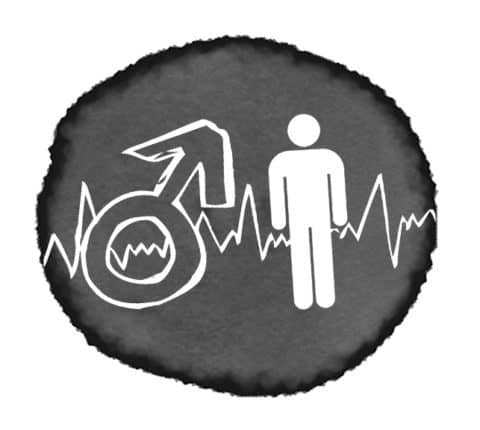Many male students at the University of Saskatchewan go through emotional stages and have times when they feel lonely. A new group for men on campus hopes to provide community for these students, while addressing the question of what it means to be a man today.
According to Statistics Canada, in 2012 the suicide rate for Canadian men was three times higher than for women, a rate that has been consistently higher for over 60 years. While suicide is affected by many factors, Statistics Canada also reports that depression is the most common illness in suicide cases. Recognizing this fact, Rueben Dreher, third-year kinesiology student and creator and leader of the new men’s group, wants male students to have a safe place to go where they can share their stories and create companionship with others.
Rueben Dreher, third-year kinesiology student and creator and leader of the new men’s group, wants male students to have a safe place to go where they can share their stories and create companionship with others.
Dreher hopes that the group will help male students define what a good man truly is and make them feel more comfortable with their identities.
“There isn’t anything like it. If you’re a young man and you’re coming here, you take on a lot of responsibilities and opportunities and it becomes very difficult to guide yourself and understand where you fit in the world. This is a great opportunity for mentorship for younger and older men,” Dreher said.
The group, consisting of eight members, wants to reach out to men at the university who are struggling with how to define what it means to be a good man. Group sessions are held every Wednesday at 12:30 p.m. in the Memorial Union Building, room 118.
Over the course of this term, the group will cover a range of topics, including fatherhood, feminism, homophobia, men’s health, body positivity and sexual assault intervention, topics that men often have little opportunity to discuss with each other. The sessions feature guest speakers, such as professionals, professors and counsellors, who will discuss topics like male identity, the problems men face every day and the impact of stress on the male body.
Dreher also hopes that the group will be a space to confront stereotypes of masculinity, such as the belief that men should not express their feelings openly or the misconception that all men are violators.
“Our goal is to increase men’s knowledge about their roles in society and increase information about opportunities as our roles as men,” Dreher said. “This also is a great opportunity for men to meet other men on campus and to create friendships.”
According to Dreher, the motto of the men’s group is companionship and support, rather than promotion of the concepts and issues that will be talked about in the group.
“We’re not sure if we want to focus on advocacy or just companionship and fellowship. That’s something next year we will want to look at,” he said.
Dreher also states that the group is closely associated with the Peer Health Mentors on campus.
“The Peer Health Mentors is a student extension of Student Health Services, which advocates health issues to students on campus,” Dreher said.
He explains that both physical and mental health issues are a concern to staff and students on campus, and that these concerns, particularly for male students, sparked the idea for the men’s group.
“Last term, I was working with the mental health group and we had a student come forward interested in a men’s group. I reached out to a few staff [members] that I knew and people that were volunteering. We pitched ideas and concepts around until we put it on the schedule and came up with the focus of our group,” he said.
Dreher believes that stereotypes about men can be misleading and hurtful, and he hopes that the men’s group can make a positive impact on male students at the U of S.
“I have a personal motivation in this due to my involvement with the Peer Health Mentors and when they bring up sexual assault awareness on advertisements, they tend to market men as monsters. I think it would be interesting to discuss that in the group and get the point across that not all men are monsters.”
—
Lindsay Rose
Graphic: Jeremy Britz / Photo Editor